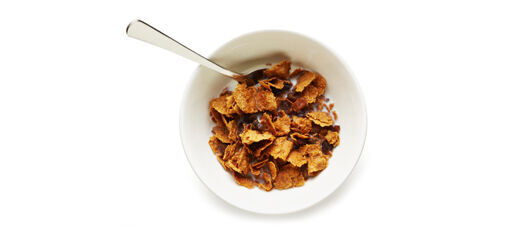
People who eat a high fibre diet experience a lower risk of first-time stroke, according to new research from the University of Leeds.
Dietary fibre is the part of the plant that the body is unable to completely digest. Fibre rich foods include wholegrains, vegetables, fruit, legumes, nuts and seeds.
Previous research has shown that dietary fibre may help reduce risk factors for stroke, including obesity, high blood pressure and high blood levels of low-density lipoprotein (LDL) “bad” cholesterol.
Whilst it is recommended that adults eat between 18 and 25g of fibre each day, the average intake amongst British adults is only 14g. This new study shows that a seven gram increase in dietary fibre per day was associated with a seven percent decrease in first-time stroke risk. This is the equivalent of one serving of whole wheat pasta and two servings of fruits or vegetables.
“Increasing your fibre intake doesn’t necessarily mean wholesale change to your diet. It might just mean switching from white bread to wholemeal, or from corn flakes to bran flakes. It’s a simple measure with a lot of benefits,” said Dr Victoria Burley, the project lead from the School of Food Science and Nutrition.
The researchers analysed, and combined the results of, eight studies published between 1990 and 2012. The studies reported on all types of stroke with four also examining the particular risk of ischemic stroke, which occurs when a clot blocks a blood vessel to the brain, and three also assessing the particular risk of haemorrhagic stroke, which occurs when a blood vessel bleeds into the brain or on its surface.
“Any long-term increase in intake of fibre-rich foods such as whole-grains, fruits, vegetables and nuts will see the risk of stroke reduce. This could be particularly important for people with stroke risk factors like being overweight, smoking and having high blood pressure,” said Diane Threapleton, the lead author of the study who conducted the research as part of her PhD .
In the United Kingdom, around 150,000 people have a stroke each year and it is the third most common cause of death. Among survivors, the disease is a leading cause of disability.
The research was funded by the Department of Health for England with sponsorship of Diane Threapleton’s doctoral studies by Kellogg Marketing and Sales Company (UK) Ltd.
It was published in the American Heart Association journal Stroke on 28th March 2013.
For more information
Contact Sarah Reed, Communications, University of Leeds, T: +44 (0)113 3434196 E: s.j.reed@leeds.ac.uk
The paper Threapleton DE, Greenwood DC, Evans CEL, Cleghorn CL, Nykjaer C, Woodhead C, Cade JE, Gale CP, Burley VJ, Dietary Fiber Intake and Risk of First Stroke: A Systematic Review and Meta-Analysis. Stroke (DOI: 10.1161/STROKEAHA.111.000151) is available.